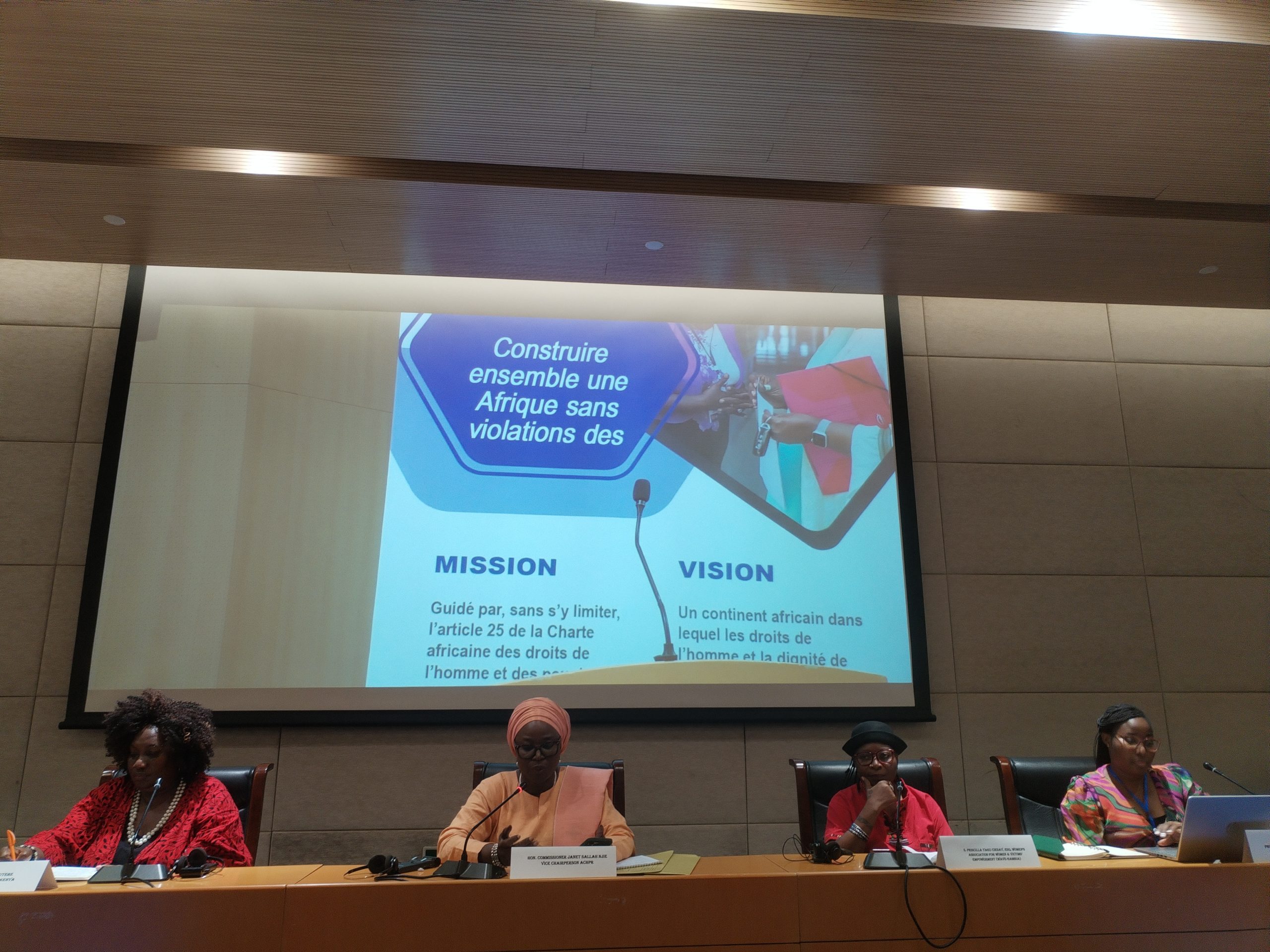This panel, focused on the next steps for the Convention, was moderated by Commissioner Janet Sallah-Njie, Vice-Chairperson of the African Commission on Human and Peoples’ Rights (ACHPR) and Special Rapporteur on the Rights of Women in Africa.
It featured S. Priscilla Yagu Ciesay, Executive Secretary of the Women’s Association for Women and Victims’ Empowerment, Jaqueline Mutere of Grace Agenda Kenya, and Adjo Delali Kloutseh, Programme Director at Femmes Africa Solidarité.
Speakers underscored the urgent need to raise awareness of the African Union Convention on Ending Violence Against Women and Girls (AU-CEVAWG) as a transformative legal instrument designed to strengthen protections against all forms of violence targeting women and girls.
Commissioner Janet Sallah Njie explored the practical implications of implementing and popularising the new Convention, which aims to harmonise efforts across Africa to eliminate gender-based violence in all its forms physical, psychological, sexual, economic, and digital.
Commissioner Njie opened the session by emphasising that the adoption of the AU-CEVAWG represents a defining moment for women’s rights advocacy in Africa.
She noted that the Commission views the Convention not only as a policy milestone but as a call to collective action among AU member states, civil society actors, and communities.
The Commissioner underscored the importance of transforming the legal text into real societal change through ratification, national domestication, and resource allocation. She also reminded participants that only a handful of countries, including The Gambia, Angola, Liberia, and the Democratic Republic of Congo, have signed the Convention as of July 2025, as highlighted in a statement issued by the Commission.
Reiterating the difficult context for women in Africa, with high number of femicides, Adjo Delali Kloutseh described the importance of ratification and awareness on the Convention (in the room we noted that very few participants know about it).
The instrument does not replace the Maputo Protocol, but rather complements it, and insists on the legal obligations of States.
S. Priscilla Yagu Ciesay highlighted the persistent challenges that survivors of violence face, particularly in rural and conservative communities.
Drawing from her extensive field experience, she explained that fear of stigma, lack of confidentiality, and the perceived futility of the justice system discourage survivors from reporting their experiences. She advocated for a survivor-centred approach that ensures access to free legal aid, trauma counselling, and shelter.
Ciesay also called on media organisations and faith-based groups to play a transformative role in changing harmful norms, consistent with the African Union’s framework’s emphasis on community awareness.
Jaqueline Mutere discussed building these frameworks with affected people through storytelling and testimonies to restore dignity for victims of violations: ‘When you take away a story you take away a life,’ she said. She also deplored the length of judicial procedures, and insisted on reparations, not only as financial but above all moral.
Discussions echoed findings by various human rights organisations, which have argued that effective popularisation of the Convention requires simplification of legal texts into community languages and collaboration with local civil society. Participants also highlighted the need to engage youth and traditional leaders in awareness initiatives, as social norms and power dynamics often determine outcomes for victims of violence.
Overall, the panel served as a reminder that legislation alone cannot end gender-based violence. The implementation process must be inclusive, survivor-centred, well-resourced, and monitored continuously.
The Convention offers a unified, legally binding pathway for Africa to realise its vision of a continent where all women and girls live free from violence, discrimination, and fear.
Author
Salomé Boucif
Salomé leads our work on trainings and capacity development initiatives online and offline, such as the Human Rights Defender Advocacy Programme and the ISHR Academy. Salomé has over 9 years’ experience working in the humanitarian sector in the field of access to education and advocacy as a project manager.
Article also available in




